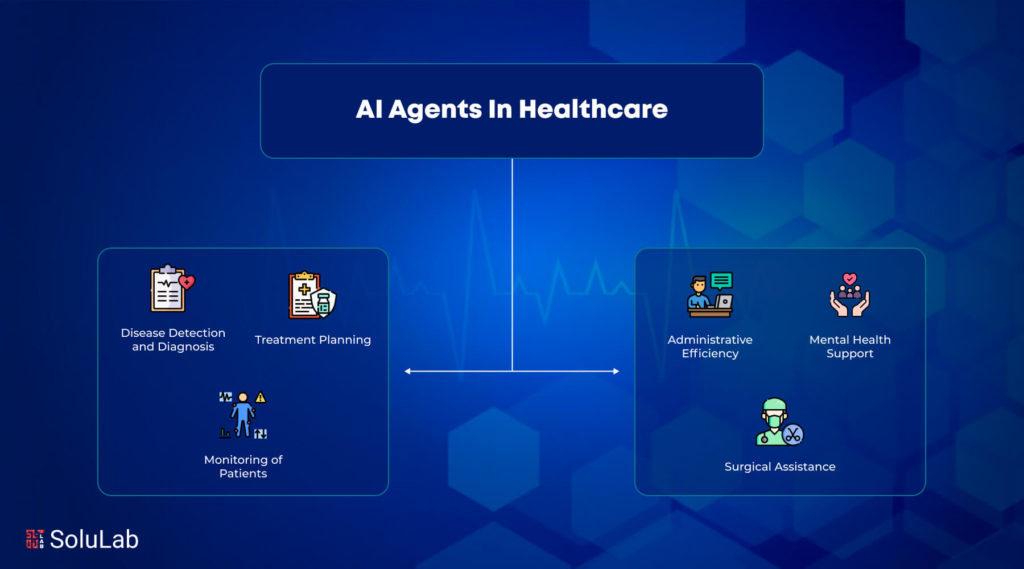Your Retirement Coverage Roadmap Starts With the Punta Gorda Medicare Agency
Your Retirement Coverage Roadmap Starts With the Punta Gorda Medicare Agency
Blog Article
Just How Insurance Coverage Functions for Elders: Secret Insights Into Medicare and Coverage Options
Comprehending insurance coverage for seniors, specifically Medicare, is essential for efficient healthcare administration. Medicare offers important protection, yet its complexities can be overwhelming. Senior citizens need to browse different elements, such as Parts A, B, and D, in addition to choices like Medicare Benefit and Medigap policies. Each choice effects their monetary responsibilities and accessibility to services. Unpacking these elements discloses substantial understandings that can influence their healthcare choices. What are the crucial facets senior citizens should consider?
Understanding Medicare: An Overview

Medicare Components A and B: What They Cover
Medicare Components A and B offer essential insurance coverage for senior citizens, resolving both hospital and clinical services. Component A concentrates on medical facility insurance, covering inpatient keeps and specific outpatient solutions. Component B offers insurance coverage for a range of clinical services, including doctor sees and precautionary care.
Healthcare Facility Insurance Policy Coverage
How do senior citizens navigate the complexities of healthcare facility insurance policy coverage? Medicare Part A gives crucial hospital insurance coverage, covering inpatient remains, proficient nursing center treatment, hospice services, and some home health and wellness treatment. This protection is crucial for seniors, as it helps handle the prices associated with hospital stays and recovery.Medicare Component B, on the various other hand, matches Component A by covering outpatient services, including medical professional gos to, preventative treatment, and analysis tests. Together, these two parts develop a thorough safety and security web for seniors, ensuring they have access to required medical care. Comprehending the differences in between Parts A and B enables seniors to make informed decisions concerning their medical care needs and financial responsibilities connected with medical facility services.
Medical Services Coverage
While traversing the complexities of clinical services insurance coverage, senior citizens gain from recognizing the specific offerings of Medicare Parts A and B. Medicare Part A primarily covers inpatient hospital keeps, experienced nursing center care, hospice treatment, and some home wellness treatment solutions. On the other hand, Medicare Component B concentrates on outpatient solutions, consisting of medical professional brows through, preventative treatment, analysis examinations, and long lasting clinical equipment. Additionally, Component B covers specific mental health and wellness solutions and outpatient rehabilitation. Together, these components provide a detailed structure for handling health care needs. Seniors must familiarize themselves with the nuances of these coverage alternatives to assure they optimize their benefits and decrease out-of-pocket expenditures, inevitably improving their access to necessary medical solutions.
Medicare Benefit Strategies: A Different Strategy
An expanding number of seniors are discovering Medicare Benefit Program as a feasible choice to conventional Medicare. These plans, likewise known as Medicare Part C, are provided by exclusive insurer and encompass all benefits of Medicare Components A and B, commonly consisting of additional solutions such as vision, oral, and health care. Numerous senior citizens appreciate the structured technique, as these strategies typically offer a single plan that covers various medical care needs.Medicare Advantage Strategies can provide a cost-effective choice, with some strategies also including low or no month-to-month costs. However, it is vital for elders to assess the network of hospitals and medical professionals associated with each strategy, in addition to any type of additional out-of-pocket costs that might emerge. Eventually, choosing a Medicare Benefit Plan calls for mindful consideration of individual wellness requirements and financial situations, making certain elders select the option that best suits their way of living and medical care needs.
Prescription Medicine Insurance Coverage: Medicare Component D
Medicare Component D supplies necessary prescription drug coverage for seniors, assisting to manage the prices of necessary medicines. Understanding the registration period is important for recipients to optimize their benefits and prevent fines. Additionally, price considerations play a significant duty in picking the right plan to match individual wellness demands and monetary scenarios.
Coverage Basics Explained
Prescription medication protection is a vital component of health care for seniors, guaranteeing access to essential medicines. Medicare Component D provides a range of strategies designed to help cover prescription medicine prices. These strategies are offered by private insurance policy business authorized by Medicare and can vary widely with respect to premiums, deductibles, and covered drugs. Beneficiaries normally pay a month-to-month premium, in addition to copayments or coinsurance for each and every prescription. It is essential for seniors to review their choices each year, as costs and formularies may alter. Some individuals may additionally certify for Additional Aid, a program that helps with out-of-pocket costs. Ultimately, comprehending these fundamentals permits elders to make enlightened choices regarding their prescription medication protection.
Enrollment Duration Information
Understanding the different registration durations for Medicare Component D is essential for senior citizens looking for to protect their prescription medication coverage. The Initial Registration Duration (IEP) lasts 7 months, beginning three months prior to an individual turns 65 and finishing 3 months after. Throughout this time, seniors can enroll in a Component D strategy without fine. The Yearly Enrollment Period (AEP) ranges from October 15 to December 7 yearly, permitting beneficiaries to make adjustments to their existing plans or enroll in a new one. Additionally, elders may get a Special Enrollment Period (SEP) as a result of particular situations, such as transferring or shedding other coverage. Awareness of these timeframes is crucial for making certain sufficient prescription drug coverage.
Price Factors To Consider Summary
While navigating with the complexities of healthcare costs, seniors have to take into consideration the monetary facets of Medicare Part D, which gives vital prescription medicine coverage. This program involves different costs, consisting of regular monthly costs, annual deductibles, and copayments for medicines. Premiums can vary substantially based on the picked plan and revenue degree. Additionally, see recipients might experience an insurance coverage void, frequently referred to as the "donut hole," where out-of-pocket costs enhance until getting to a certain spending limit. Understanding these cost structures is vital for senior citizens to effectively manage their health care budget plans. Additionally, it is a good idea for elders to evaluate their prescription requires each year, as medications and strategy alternatives might transform, impacting total costs and insurance coverage competence.
Medigap Policies: Supplementing Your Medicare Insurance Coverage

Medicaid: Added Support for Low-Income Seniors
For senior citizens encountering monetary difficulties, Medicaid functions as an important safety and security internet, supplying vital medical care insurance coverage and support. This program, administered collectively by federal and state federal governments, especially targets low-income individuals, consisting of the elderly. Medicaid covers a wide variety of services, such as healthcare facility stays, medical professional sees, lasting treatment, and home wellness services, which are fundamental for preserving health and wellness and wellness. Qualification for Medicaid differs by state, frequently based on earnings, assets, and details clinical needs. Many senior citizens might certify for both Medicare and Medicaid, called twin qualification, which can help cover expenses that Medicare does not, such as copayments and deductibles. Additionally, Medicaid may give aid with prescription drug expenses via programs developed for low-income beneficiaries. On the whole, Medicaid plays a considerable duty in making certain that low-income senior citizens have accessibility to required medical care services, promoting better health results and lifestyle.
Browsing the Registration Refine: Key Timelines and Tips
Exactly how can seniors effectively browse the facility registration procedure for healthcare insurance policy? Recognizing vital timelines is necessary. The initial enrollment duration for Medicare begins three months prior to the private turns 65, prolongs through the month of their birthday, and proceeds for 3 months after. During this duration, seniors can register in Medicare Part A and Part B without penalties.Additionally, the yearly open registration duration for Medicare Advantage and Part D ranges from October 15 to December 7 yearly, permitting modifications in insurance coverage. Elders are recommended to assess their existing health needs and review plan alternatives during this time.To promote a smooth registration experience, utilizing sources such as the Medicare site or speaking to state wellness insurance coverage help programs can offer useful advice. Tracking due dates and required files will further guarantee that elders protect the most suitable protection for their healthcare requires.
Regularly Asked Inquiries

Can I Keep My Existing Physician With Medicare Protection?
The concern of preserving an existing medical professional under Medicare coverage frequently depends on the particular plan picked. Many Medicare Benefit strategies may need using a network of carriers, while Original Medicare normally enables wider access to medical professionals.
What Happens if I Miss the Enrollment Period?
If a specific misses out on the enrollment duration, they may deal with postponed protection, greater costs, or prospective fines. Home Insurance Near Me. This scenario can cause gaps in medical care access, prompting the need for mindful planning and recognition of target dates
Are Dental and Vision Services Covered by Medicare?
Oral and index vision solutions are generally not covered by Medicare. However, some Medicare Benefit strategies may provide these advantages. Senior citizens must explore their choices to establish if added coverage is available for these vital services.
Just how Do I Submit a Problem Regarding My Medicare Strategy?
To file an issue concerning a Medicare strategy, Look At This one must get in touch with Medicare directly at 1-800-MEDICARE or visit their website. Reporting issues helps boost services and guarantees that worries are attended to promptly.
Can I Change My Medicare Strategy After Enrollment?
Altering a Medicare strategy after enrollment is possible throughout designated durations, such as the Annual Registration Period or Special Registration Periods (Senior Insurance Agent). Individuals should review their options very carefully to ensure they select the most effective coverage for their demands
Conclusion
In recap, understanding the ins and outs of Medicare and its various elements is vital for senior citizens looking for to maximize their health care protection. By checking out Medicare Components A and B, Advantage Plans, Component D for prescriptions, and Medigap policies, senior citizens can make informed choices that decrease out-of-pocket expenditures. Furthermore, understanding of Medicaid alternatives supplies further support for low-income individuals. Leading the registration procedure with essential timelines guarantees that senior citizens can access the crucial services they need for their well-being. The program is separated right into Original Medicare and Medicare Benefit, each offering distinct benefits and insurance coverage choices. While going across the complexities of medical services protection, senior citizens profit from recognizing the specific offerings of Medicare Parts A and B. Medicare Part A mainly covers inpatient healthcare facility keeps, proficient nursing facility care, hospice treatment, and some home health and wellness treatment solutions. A growing number of senior citizens are checking out Medicare Benefit Program as a viable choice to conventional Medicare. Numerous senior citizens might certify for both Medicare and Medicaid, recognized as dual eligibility, which can aid cover expenses that Medicare does not, such as deductibles and copayments. During this duration, elders can register in Medicare Part A and Part B without penalties.Additionally, the annual open registration period for Medicare Benefit and Part D runs from October 15 to December 7 each year, enabling adjustments in protection.
Report this page